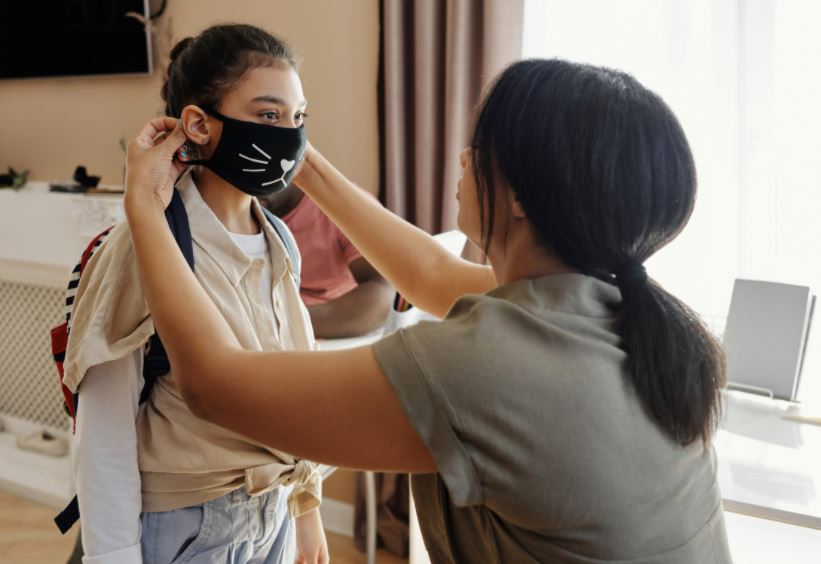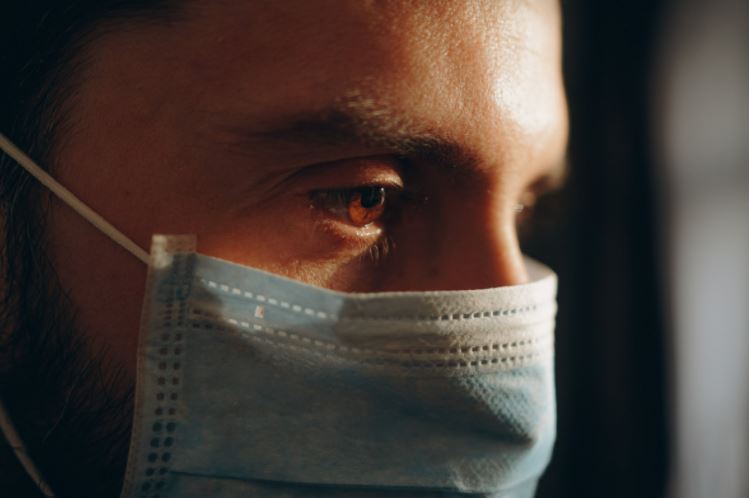92 projects to collect, recycle scrap tires
|
|
|
|
|
|
|
|

FOR IMMEDIATE RELEASE March 14, 2022 Contact: Press@michigan.gov
Gov. Whitmer Awards $2.7 Million to Expand Science, Technology, Engineering, and Mathematics Programs in Schools
LANSING, Mich. – Governor Gretchen Whitmer today announced that Kalamazoo RESA, Grand Valley State University and Washtenaw ISD will each receive about $900,000, or $2.7 million total, in funding to support the statewide K-12 expansion of science, technology, engineering and mathematics (STEM) education.
“STEM education opportunities are critical as we prepare young Michiganders for high-tech, high-skill careers that will serve as the backbone of Michigan’s economy,” said Governor Gretchen Whitmer. “These investments are critical to ensure our schools have the funds to help each and every Michigander reach their full potential. And in my budget recommendation for next year, I have proposed the biggest per-student investment ever and $1 billion for school construction and renovation so we can keep funding and building more computer labs, classrooms, and science facilities to help our kids pursue their potential.”
Michigan has the potential to become a world leader in STEM education and careers, due to strong talent, educational institutions and thriving industries. According to the federal Bureau of Labor Statistics, STEM careers had median wages in 2020 that were more than double that of non-STEM occupations. These careers are expected to grow at more than twice the rate of other occupations in the upcoming years. Michigan has the 4th largest engineering, design and development (EDD) workforce in the nation, with over 113,000 employed in related industries in 2020. Employment in EDD industries is almost twice as concentrated in Michigan as the national average.
“Exposure to engineering and technology changed my life, and I know the role it can play in sparking imagination and molding students into leaders,” said Lt. Governor Garlin Gilchrist. “Strong STEM
Approved by the Michigan STEM (MiSTEM) Advisory Council within the Michigan Department of Labor and Economic Opportunity (LEO) and administered by the Michigan Department of Education, the grants will be awarded to:
This year’s funding will support the continuation of educator and student STEM programs and convene key stakeholders to develop a four-year strategic plan that features innovative, sustainable and cost-effective statewide collaborations of diverse stakeholders.
“Regardless of their gender, ethnicity, or socioeconomic status, students need to consider the widest range of possibilities as careers, including STEM careers,” said State Superintendent Dr. Michael Rice. “Expanding STEM education helps our children not only dream bigger but realize a wealth of career opportunities and how STEM education will help them achieve their dreams.”
“The MiSTEM Network continues to make tremendous strides in making STEM learning accessible for more students across Michigan,” said LEO Director Susan Corbin. “When more students have access to STEM curriculum, they gain the skills needed for high-demand, high-skilled careers of the future.”
The MiSTEM Advisory Council consists of business, higher education, K-12 education, and philanthropic leaders. It was created by the Michigan legislature in 2015 to make recommendations that will help the state become a world leader in STEM education.
For more information on the MiSTEM Advisory Council and the MiSTEM Network, visit www.michigan.gov/mistem. |

Pontiac, Michigan – Thursday, March 10, 2022 marks two years since Oakland County’s first confirmed COVID-19 case. Since then, the county has encountered a quarter-million confirmed cases, about 242,000 of whom have recovered.
In the meantime, new COVID-19 cases continue their downward trend. There were fewer than 1,700 confirmed and probable cases in Oakland County from Feb. 21 – March 6, down 30 percent from the previous report. The seven-day test positivity rate has dropped below five percent to 4.6 percent.
“The COVID pandemic revealed both our vulnerabilities and our resilience in fighting through this public health crisis,” said Oakland County Executive David Coulter. “We also learned some unexpected lessons that will make us stronger moving forward. We learned how to work in different ways and how to offer more accessible and efficient online services. This crisis helped to reduce the stigma around our mental health and highlight the need for more accessible services and it shined a spotlight on disparities in health care that we can now measure and address. Most importantly, COVID, which tragically took so many, has given us a renewed appreciation for friends, family members and neighbors.”
Over 920,000 Oakland County residents have stepped up to get vaccinated to protect themselves, loved ones, and neighbors since COVID-19 vaccines became available on Dec. 17, 2020. They represent more than 77 percent of Oakland County residents 5 years and older who are eligible to receive primary series doses. Half of residents who completed their primary series doses also opted to receive a third or booster dose.
Oakland County’s 217,000-plus seniors 65 years and older outpaced all other age groups for getting the COVID-19 vaccine. Almost 94 percent opted to begin their primary series doses.
In total, Oakland County’s 612 enrolled providers have administered more than 2.16 million primary series, third, and booster doses to Oakland County residents. Oakland County Health Division was responsible for more than 265,000 – or about 20 percent – of those doses at 1,457 community vaccination events. The Health Division offered 49 of those clinics at schools throughout Oakland County to increase vaccine accessibility for families and provide a comfortable environment for youth. Nearly 20,000 people received their COVID-19 vaccine at local schools. In addition, the Health Division swabbed more than 66,000 COVID-19 tests at 238 drive-through testing events.
Here are a few stories about Oakland County’s response to the pandemic and some quiet heroes whose work helped particular individuals or communities:
One need that emerged after the Health Division began administering vaccines was homebound vaccination services. The Health Division contracted with multiple partner agencies to answer the call and administer 1,300 doses to residents who were often considered high risk due to pre-existing conditions and encountered barriers to leaving their homes to be vaccinated. This does not include long-term care facilities.
One family who utilized the county’s homebound vaccination services stands out. Though they only lived across the street from one of the county’s community vaccine clinics, it took a sister and brother 40 minutes to get their wheelchair bound brother to the clinic so he could get his first dose. The siblings covered their brother, who had survived a horrible car crash a few years prior, with a blanket so no one would stare at him. While there, they were elated to learn that an Oakland County public health nurse would visit their home to provide their second doses. They felt a strong connection with the nurse who provided the second doses and called her directly for another home visit when it came time for booster doses.
Homebound COVID-19 testing also was a priority. The Health Division partnered with Hatzalah of Michigan to provide members of the Orthodox Jewish community with testing and vaccinations. This helped mitigate the spread of COVID-19 in their close-knit community where group gatherings are held regularly.
Oakland County Health Division’s emergency preparedness and nursing staff in partnership with the National Guard and many EMS agencies brought COVID-19 testing and vaccinations to 70 long-term care (LTC) facilities over the course of the pandemic. Residents in LTC facilities are at high-risk of transmission of the disease and are more vulnerable to complications from COVID-19. Oakland County’s nurses and epidemiologists also served as liaisons to LTC facilities to support infection prevention protocol and provide immediate assistance if PPE or testing was needed. Both efforts helped mitigate the spread of the virus.
Finally, the Health Division partnered with the Street Medicine team from Oakland University William Beaumont School of Medicine to prevent the spread of COVID-19 among the homeless community. They brought COVID-19 screening to area shelters and hotels that housed shelter residents in isolation or quarantine. This outreach included flu vaccinations along with COVID-19 vaccinations as they became available. Health Division nurses assigned to the county’s Homeless Healthcare program worked with shelter agency leaders to develop best practices to help prevent the spread of the virus at shelters.
|

Press Release FOR IMMEDIATE RELEASE: March 11, 2022 CONTACT: Lynn Sutfin, 517-241-2112, SutfinL1@ MDHHS updates Isolation & Quarantine Guidance based on low LANSING, Mich. – Based on current conditions and low numbers of new COVID-19 cases, the Michigan Department of Health and Human Services (MDHHS) is updating its COVID-19 Isolation & Quarantine guidance for Michigan residents, including for school settings. “We are updating our guidance to reflect the fact the state has entered a post-surge, recovery phase,” said Dr. Natasha Bagdasarian, MDHHS chief medical executive. “As we move through the phases of our COVID-19 response our recommendations will be updated to reflect the current status of transmission, while continuing to prioritize public health and promote health and wellness for all communities. We continue to strongly urge all residents ages 5 and older get the safe and effective COVID-19 vaccine and to get boosted when eligible as the vaccine continues to be our best defense against the virus.” This update does not change guidance for health care, long-term care, corrections and other high-risk settings, and these entities should continue to follow existing guidance.
ISOLATION
AND
OR
NOTIFICATION OF CONTACTS
QUARANTINE Quarantine guidance may be adjusted to respond to and control outbreaks within unique settings as needed. Local leaders and individuals should work with their local health departments for outbreak response and follow additional quarantine recommendations as situations dictate to maintain a safer environment for community members.
2. Exposure is to other type of contact (from a community, social or work setting)
Along with MDHHS’ updated guidance, there may also be local isolation & quarantine guidance, policies and/or orders from local health departments, organizations and/or school districts that must be followed. Policies established by event organizers and businesses may be instituted to fit the specific needs of their customers and should be followed. In addition, the Licensing and Regulatory Affairs Child Care guidelines have been updated to provide consistent recommendations with K-12 schools. This includes revised recommendations around masking to reflect personal choice. Isolation and quarantine periods have been updated to align with MDHHS recommendations for the general population and K-12 schools. These changes make it easier for childcare staff members and families to navigate COVID-19 for the majority of children. MDHHS supports adjusting recommendations as the state cycles through periods of response, recovery and readiness and following local health department decisions based on local conditions. As part of the state entering the Recovery phase, MDHHS has also rescinded its requirement that schools report confirmed and probable cases of COVID-19. The COVID-19 cycle has been broken down into three key phases:
During the recovery phase, masks remain an important tool in mitigating spread of COVID-19. Individuals who feel sick, may be at higher risk of infection or who feel better protected when masked should choose when they feel comfortable masking. Michiganders should consider their individual and family members’ risk factors and vaccination status when making the personal decision whether to mask. Those with chronic illness or who are immunocompromised are at higher risk for poor outcomes from COVID-19 and would benefit most from masking in indoor settings. These risk factors may include age, medical conditions and vaccination status. For more information, visit Michigan.gov/Coronavirus To find a vaccine, visit VaccineFinder.org. |